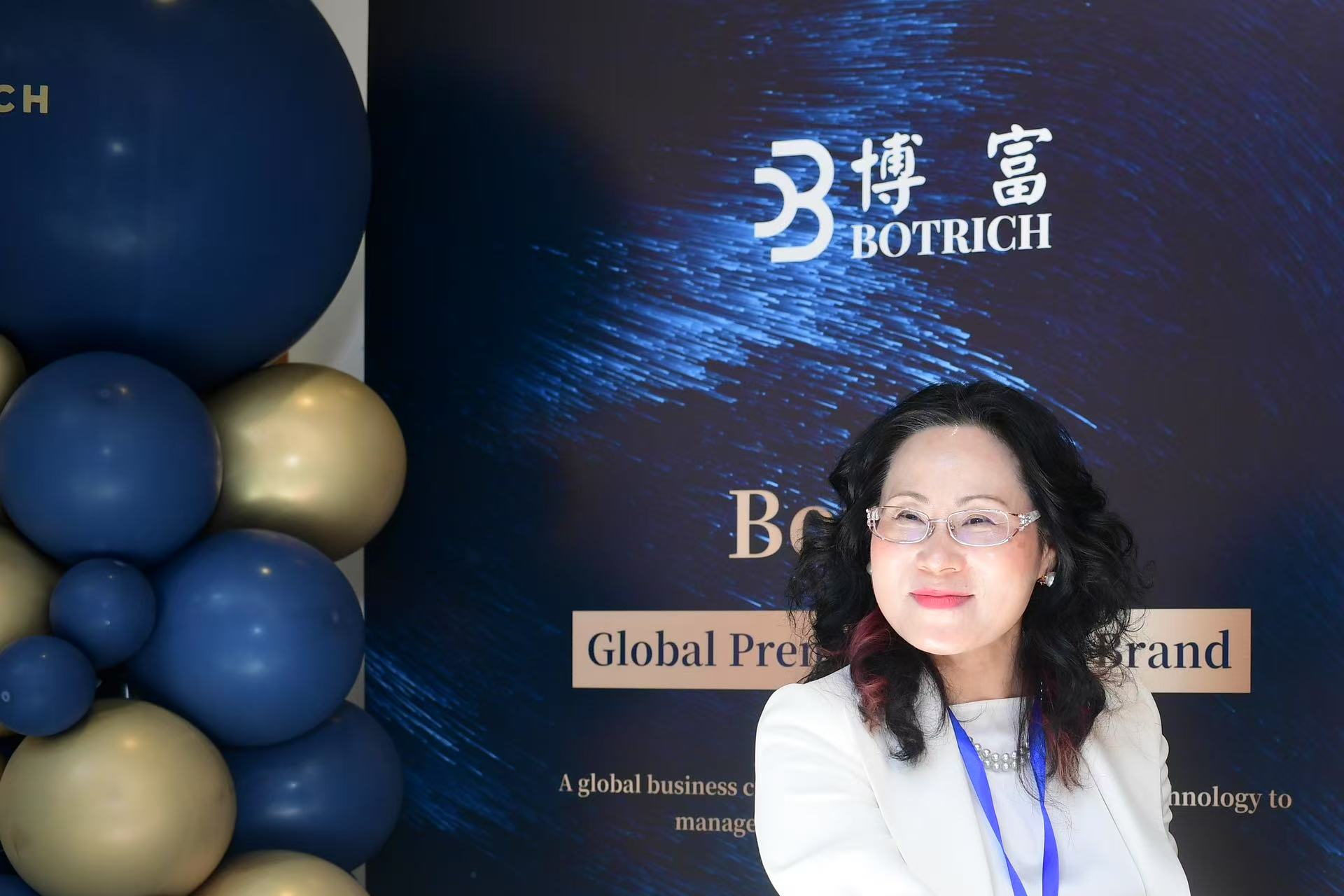
Hong Wei Liao has built a reputation as a leader who combines business success with a strong sense of responsibility. She is the Chairman of the Botrich Family Wealth Heritage and Development Center, where she focuses on helping families and organisations grow with stability, vision, and long-term impact.
Her path to leadership has been shaped by both education and real-world experience. She studied with the goal of understanding not just how businesses operate, but also how they create value for people and communities. Over time, she applied these lessons to her own career, building a track record of guiding projects that balance profit with purpose.
Hong Wei Liao is known for her ability to connect strategy with human values. She has led initiatives that promote wellness, leadership, and social responsibility, showing that business can be a force for good. In her role, she supports programs that encourage collaboration, focus, and perseverance, believing that these traits drive lasting success.
Beyond her professional achievements, she is also a strong advocate for community engagement. She has supported events and causes that bring people together, including charity-driven projects that reflect her belief in giving back.
Her story shows what can happen when vision and determination meet action. By combining her knowledge, leadership, and commitment to positive impact, Hong Wei Liao has become a respected voice in business and beyond. She continues to inspire others by proving that success is not only about personal achievement, but also about building opportunities for others.
Q&A:
Q: You’ve had a long career leading at the intersection of business, family wealth, and development. When you think of success, what does it mean to you?
Success, for me, has never been just about numbers or titles. It’s about creating stability for families and organisations so that growth lasts beyond one generation. I’ve seen businesses rise quickly and then fall because they only thought about short-term gains. True success is about building something durable. I think of it as planting trees. You may not sit under all the shade yourself, but others will benefit for years.
Q: Was there a turning point in your education or career that shaped how you see success today?
During my early years of study, I was drawn to how values influence leadership. I realised you can have the best strategies on paper, but if people don’t trust you or feel invested, the plan fails. Later, when I was given my first chance to lead a major initiative, I focused less on control and more on alignment. We didn’t meet every single target, but the project was sustainable because the team believed in it. That taught me success isn’t perfection. It’s momentum with purpose.
Q: How has your work at the Botrich Family Wealth Heritage and Development Center influenced your views on success?
I’ve seen how wealth, if not guided well, can become a burden instead of a benefit. Helping families manage not only their assets but also their values has been eye-opening. Success in this context means making decisions that honour both the present and the future. For example, by leveraging Botrich’s global network and expertise, we provide families with exceptional services that go beyond wealth management, integrating a wide range of premium offerings. This approach empowers families to enjoy a truly elevated lifestyle that prioritizes both long-term prosperity and high-end health and wellness.
Q: What personal habits or practices have supported your own success?
I keep a discipline of reflection. At the end of each week, I ask myself: Did my decisions match my values? Did I listen enough? Did I give time to things that matter? This practice helps me avoid chasing every opportunity without focus. Another habit is investing in health. Success feels empty if you burn yourself out. I wake early, walk outside, and give time to quiet thinking. Those habits sharpen my clarity when the bigger challenges come.
Q: Many people measure success by speed. How do you view the balance between patience and urgency?
This is something I’ve wrestled with often. There is a saying I live by: “Move fast on values, slow on judgement.” In other words, act quickly when something goes against your principles, but take your time when deciding direction. I’ve seen leaders rush into deals because they feared being left behind. Often, those same deals collapse because no one slowed down to ask, “Is this right for us?” Success comes when you know when to pause and when to push.
Q: What advice would you give someone starting out who wants to define their own version of success?
Start small and stay consistent. Don’t copy other people’s path. One student I mentored wanted to lead a global project by the age of 30. Ambition is good, but I told her, “Focus on mastering one skill first. Build trust, then expand.” She later shared that this advice helped her stop comparing herself to others and instead create a steady, meaningful career. Success is not a race. It’s a rhythm that you set for yourself.
Q: Has your view of success changed over the years?
Yes. In my twenties, success was about proving myself. I wanted recognition and results. In my thirties, it became about building credibility and creating systems that worked without me. Now, I see success as enabling others. If I step back and things keep running smoothly, that is success. It means I’ve created something that is bigger than myself.
Q: What is one misconception people often have about success?
That it brings peace of mind automatically. Success can bring pressure, expectations, and new challenges. The key is learning how to carry success without letting it control you. I’ve met people who appear very successful but live in constant fear of losing what they built. I believe real success allows you to enjoy life while sharing opportunities with others.
